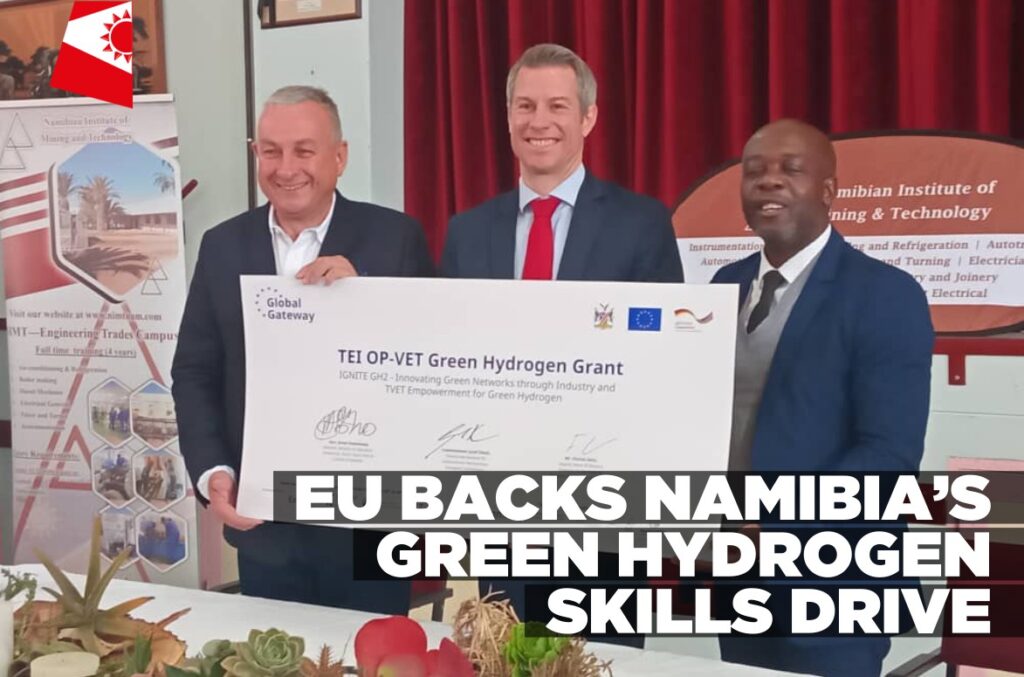By Staff Reporter
Copyright web

Business Reporter
THE “Ignite GH2” project was officially signed at the Namibian Institute of Mining and Technology (NIMT) in Arandis, providing a grant of £2 million for the training of youth in the green hydrogen sector.
Currently, Namibia has 130 000 skills gap in the envisioned green hydrogen industry.
The signing of the grant forms part of the high-level European Union (EU) delegation visit to Namibia, led by Commissioner for International Partnerships H.E. Jozef Síkela, and accompanied by Barry Andrews, Chair of the European Parliament’s Committee on Development, along with eight senior Members of the Committee and the Delegation to the Africa-EU Parliamentary Assembly.
Implemented by the Namibian University of Science and Technology (NUST) and NIMT, together with private sector GH2 operators Zhero and Hyphen, the project aims to develop technical and vocational skills on green technologies, responding to industry needs and employment opportunities emerging from investments in the green hydrogen sector in Namibia, starting in October 2025.
More precisely, “Ignite GH2” will upskill around 700 unemployed graduates to increase their employability in emerging energy sectors. A total of 40 trainers will also receive an advanced Level 6 certification, as part of a wider effort to build a workforce ready for Namibia’s green transition.
All beneficiaries of the training will be recorded on the Hyphen, Zhero and Daures Green Hydrogen Village job seeker databases and will have a ‘first call’ status prior to addressing any open recruitment call.
It will further upgrade qualifications for trainers. Commissioner for International Partnerships Jozef Síkela said that the green hydrogen industry holds the power to unlock tens of thousands of quality jobs for Namibians.
“Through Global Gateway, we are turning this promise into tangible progress and real opportunities for people across the country. The Ignite GH2 project illustrates our 360 approach: investing not only in infrastructure, but equally in people. We are connecting young Namibians directly to concrete projects in the hydrogen economy, equipping them with the technical and vocational skills they need to seize opportunities in these emerging industries,” Síkela said.
On his part, Barry Andrews, Chair of the European Parliament’s Committee on Development (DEVE), in remarks delivered by the Vice-Chair, Ms. Hildegard Bentele, welcomed the launch of the EU-funded project Ignite, enhancing EU-Namibia cooperation on vocational education and training.
“Access to education and practical skills training is a cornerstone of human development and a precondition for inclusive and sustainable growth. More importantly, the timing of this programme to develop Technical and Vocational Skills (TVET) on green technologies,” the Chair said.
He further emphasised that youth employment and skills development are top national priorities and a shared focus under the EU’s Global Gateway strategy, which promotes cooperation in technology, education and training,” Bentele said.



